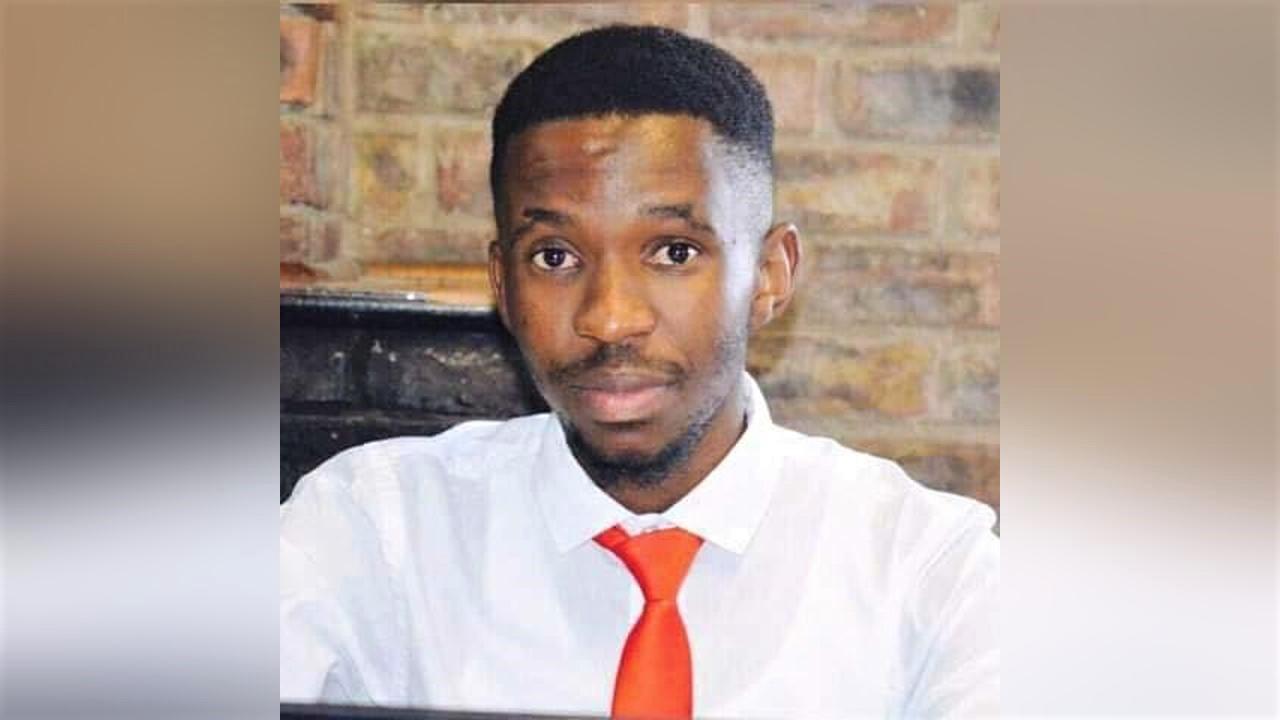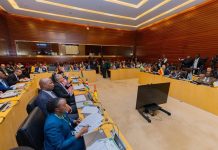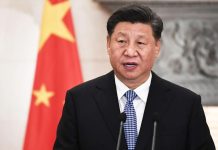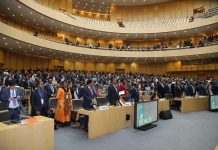Africa-Press – Lesotho. THE Form E class at St John’s High school, in Mafeteng, had gone for several months without a mathematics teacher. One day, a student stood in front of the class to say his piece.
His opinion however quickly veered into a ‘political’ speech. He told the class that they had a right to education and being denied a mathematics teacher was an injustice they should fight.
And they should remember that they paid school fees, he said. The students then summoned the principal to a meeting in their classroom. The principal said he was a mathematics teacher and would take their classes.
But little changed for the class because the principal rarely made it to lessons. Now incensed, the students called the principal to the class again. As soon as he entered the class they closed the door and told him that they would detain him until he explained why he was not teaching them.
Leading the haranguing was the same boy who had made the rousing speech that encouraged the students to call the principal to the first meeting. Several other students stood outside the door to block other teachers from coming. The teacher was ‘released’ after a few minutes.
The boy who led the small revolution is Kananelo Boloetse, a freelance journalist who has just won a court judgement to nullify the government’s state of emergency and constitutional amendments passed after the parliament was recalled.
For Boloetse, that episode was not out of juvenile delinquency or youthful exuberance to get 15 minutes of fame. “There was so much at stake for me,” Boloetse said on Tuesday, a day after the Court of Appeal dismissed the government’s appeal against the Constitutional Court ruling.
His fury was informed by his circumstances and love for mathematics. Boloetse was not born with a silver spoon. His mother could not afford school fees for him and his two brothers.
Their fees were paid by their grandmother who was a primary school principal. His mother and father separated when he was nine. Their father had been retrenched from the mines in South Africa and came back home to Mafeteng with almost nothing.
With the family’s only source of income gone, the parents started quarrelling. His mother packed her bags and left. “It was just toxic,” he says of that time.
Boloetse, then nine, and his brothers were shipped off to live with their grandmother in Mohale’s Hoek. By the time they returned to live with their mother in Mafeteng, five years later after their father died, Boloetse had passed Grade Seven.
But the poverty he had left a few years earlier was still stalking the family. His mother could not afford his fees and he had to wait three months for her grandmother to pay for his Form A.
That battle to remain in school would continue throughout high school as his grandmother struggled to pay fees for him and his brothers. So when his Form E class went for months without a mathematics teacher Boloetse felt the school did not appreciate how his grandmother was sacrificing to keep him in school.
“By denying me maths lessons they were undermining my grandmother who was toiling to pay my school fees.
They were cheating her, me, my fellow students and their parents. ” “It was an injustice. ” Boloetse also felt the school, and the principal, in particular, were sabotaging his career prospects.
“I planned to study accounting and mathematics was the key to that. Yet they were not getting us a maths teacher. ”
Boloetse is not sure if their action as a class is what led the school to appoint a new mathematics teacher a few weeks later. What matters is that he made it to the National University of Lesotho (NUL) to study marketing.
It is at college that he witnessed the power of activism. Together with his comrades in the Students’ Representative Union, they won many battles against the government and university management.
“We had a voice and it was being heard”. Boloetse did not know that the experience gathered and the bonds created in the students’ movement would have an impact in future.
He graduated in 2012 and joined a marketing company affiliated with Public Eye newspaper. He says his foray into journalism started when the Public Eye editor would occasionally assign him to write stories for events he would have attended as a marketer.
When the marketing company folded, the editor invited him to join the newsroom and he quickly learned the craft. He liked the idea of being impartial and objective. He kept his opinions out of stories. But there were times when he felt his work as a journalist was not going far enough.
He would write stories he thought would change things but most were met with indifference by those whose conscience should have been pricked to make things right or change course.
He felt he was banging his head against a wall or flogging a dead donkey. His investigative stories would expose wrongdoing but would not go as far as changing things.
The corrupt people he exposed either kept their jobs or flourished through their sleaze. The poor, whose plight he exposed, remained miserable Journalists claim there is a wall between their profession and activism.
Although social media has chipped some bricks off that wall, journalists are largely correct. Activists are opinionated and clear that their agenda is to influence or quicken the change they desire.
Journalists, however, work under stringent ethical boundaries. They should keep their views and emotions out of their stories. They derive some satisfaction when stories have an impact but that is only secondary to the core business of informing, educating and entertaining.
Yet many journalists secretly wish they could do more to steer this in a certain direction. They wish investigative stories on corruption would result in a cleaner government and force public officials to keep their hands off the cookie jar.
They want heads to roll and public officials to pay for their actions. At the very least, they want the public officials to explain themselves. Boloetse was one such journalist.
An incident in 2018 made him cross the wall between journalism and activism. He subscribed to a weekly internet bundle with his mobile service network.
When the bundle was exhausted within a few days the service provider started deducting the internet charges from his airtime. Within hours and without prior warning his airtime had been gobbled.
This was the last straw for Boloetse. He wrote to the Lesotho Communications Authority (LCA) complaining about the unfair practice. He told the LCA that the mobile network had no business deducting his airtime for internet services when his bundles were exhausted.
His use of the internet should be restricted to the bundle because that is what he subscribed to. The implications of that letter were clear to both the LCA and his mobile service provider.
For the LCA it was a chance to whip mobile companies into line and redress a wrong that has been happening for years. Boloetse was the first to officially complain about the practice but many others were sore about it.
For the mobile service provider, Boloetse’s letter was a threat to profits. Prepaid airtime is unlike bread or milk. The airtime you buy on the streets doesn’t automatically translate into a sale for the mobile service provider.
The sale is complete if you use the airtime and only then can the company record it as revenue. This means the only time you grant the company permission to deduct your airtime is when you use its service.
It’s the same concept for other prepaid utilities. The sale between you and the power company is completed when you switch on the lights or plug. By buying the bundle Boloetse had essentially restricted how much the company should deduct for internet services.
“Charging my airtime after the bundle was finished amounted to a violation of the agreement or even fraud,” Boloetse says.
The company called him to a meeting to discuss the issue after the letter to the LCA but he says “it was clear they had no justification for pinching his airtime”.
His employers were uncomfortable with his crusade because mobile companies are some of the major advertisers in the newspaper. The LCA agreed with him and immediately instructed mobile companies to stop the practice.
Boloetse had forced a regulator to protect customers and mobile companies to change the way they do business. His actions changed the way Lesotho’s two million mobile service customers are charged.
Boloetse admits that he crossed the line between journalism and activism but can justify it. “I am a citizen first and then a journalist. I was complaining to the LCA about an issue that affected me as a citizen and a customer,” he says.
He uses the same rationale to justify his complaints to the Ministry of Education about secondary school fees. For the past two years, Boloetse has been on a one-man campaign to push the government to make secondary education free.
“It doesn’t make sense that primary education is free and tertiary education is fully sponsored but secondary students have to pay fees.
“It means we are saying it’s fine for our people to have primary education only because there is a premium on secondary education.
It’s a deliberate policy to block the poor from tertiary education which is fully sponsored. ” Boloetse doesn’t pretend that he had no vested interest in this matter.
He wants to correct a government policy that almost blocked his way to high school. “If it was not for my grandmother I would not have finished secondary school.
I would not be where I am now. I see a lot of children who are going through what I went through. I see myself in them and I feel I have an obligation to fight for them.
It is the same obligation he felt a few weeks ago when he challenged the government’s decision to declare a state of emergency to recall parliament to pass the constitutional amendments for the reforms.
Boloetse felt the decision was illegal but did not have the money to file a court case to challenge it. Help came from friends he had met at the NUL. Advocate Lintle Tuke, who became one of the applicants, agreed to handle the case pro bono.
Their efforts have paid off because the state of emergency has been nullified by a ruling that could also have serious implications on how the people interact with the government.
The judgement had opened the way for anyone to challenge a government decision based on public interest. This means nearly every citizen had the legal right to sue the government even if they were not directly affected by its actions.
The Court of Appeal endorsed that judgement this week when it dismissed the government’s appeal with costs. Boloetse is happy that the state of emergency has been nullified but says it is the court’s ruling on public interest that thrills him.
“This changes a lot. It means the government cannot use someone’s lack of legal standing to challenge a policy or decision. It’s a victory for all people who want to see the government being held to account. ” Boloetse is 33 and works as a freelance journalist.
For More News And Analysis About Lesotho Follow Africa-Press






